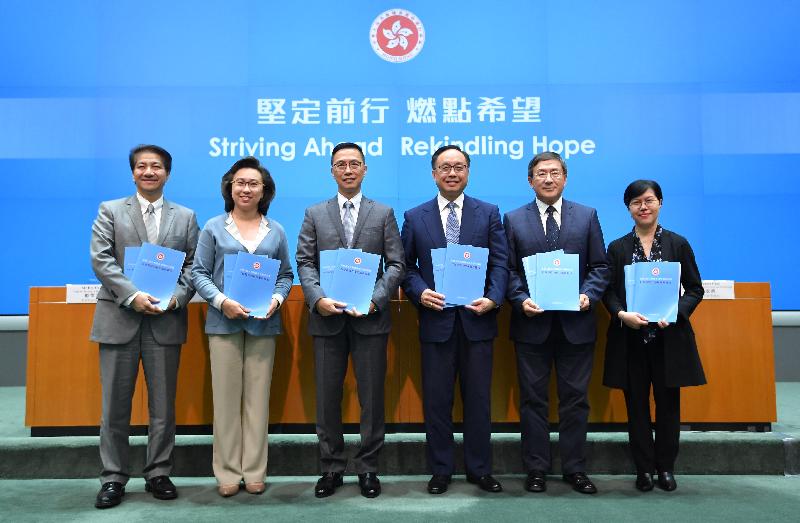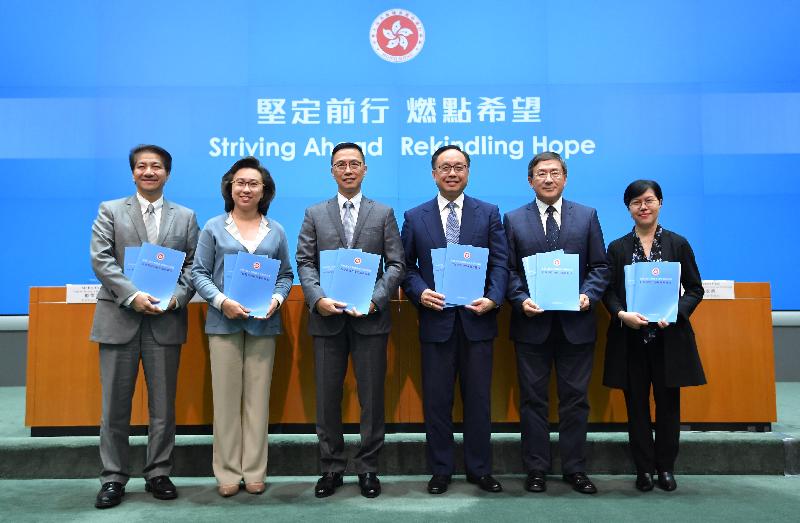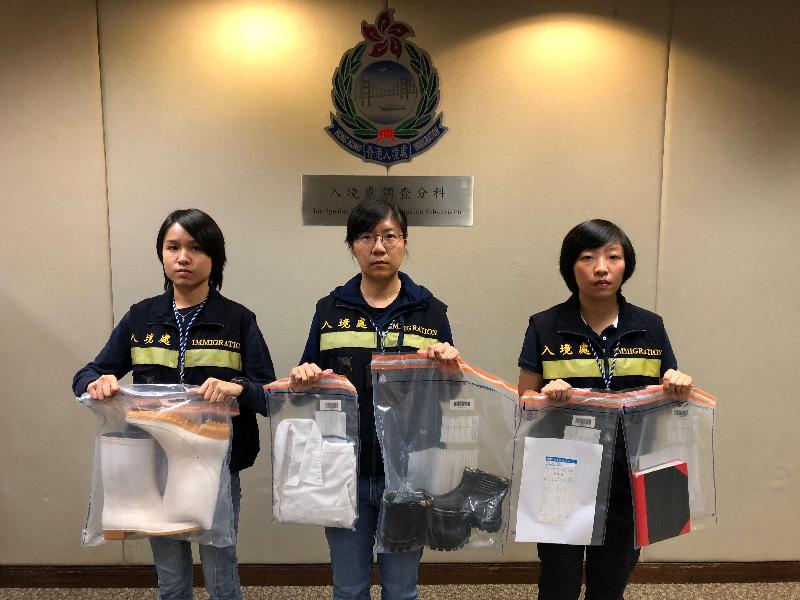Opening remarks by S for IT at press conference on innovation and technology initiatives in Chief Executive’s 2018 Policy Address (with photo/video)
Following are the opening remarks by the Secretary for Innovation and Technology, Mr Nicholas W Yang, at the press conference on innovation and technology initiatives in the Chief Executive's 2018 Policy Address today (October 11):
Dear media friends,
Welcome to the press conference today. I will briefly introduce the relevant measures outlined in the Policy Address.
Expediting re-industrialisation
To further expedite re-industrialisation, we will launch a $2 billion Re-industrialisation Funding Scheme to subsidise manufacturers, on a matching basis, to set up smart production lines in Hong Kong. Moreover, we suggest an additional allocation of $2 billion to the Hong Kong Science and Technology Parks Corporation (HKSTPC) for building manufacturing facilities required by dedicated advanced manufacturing sectors in the industrial estates.
Promoting R&D and Technology Transfer
To promote R&D, technology transfer and realisation of R&D findings, we will double the funding ceiling for Technology Transfer Offices of dedicated universities, Technology Start-up Support Scheme for Universities, State Key Laboratories and Hong Kong branches of the Chinese National Engineering Research Centre, thereby unleashing our strengths in scientific research.
Smart City
We are actively taking forward three digital infrastructure projects of smart city development, including the provision of electronic identity (eID) for all Hong Kong residents free of charge from mid-2020. Last month, we have firmed up a new policy and implementation measures on opening up government data, under which all Government departments are required to formulate and publish their annual open data plans by end of this year, in order to open up more government data and enhance the transparency of open data process.
On Smart Government, the Office of the Government Chief Information Officer (OGCIO) will set up the Smart Government Innovation Lab in 2019 to speed up the use of information technology (IT) to improve public services. It will invite the industry to submit IT proposals and product suggestions for various public services, and facilitate the trials and technology testing of suitable solutions.
In addition, we plan to introduce artificial intelligence and chatbot functions in the GovHK portal in 2019 to facilitate the public to search and use e-Government services, while chatbot functions will also be introduced to the 1823 service. With the full adoption of eID upon its implementation, it is expected that by mid-2021, the general public will be able to use eID in about 100 e-Government services via their computers or smartphones, and submit almost all 3 000 government forms electronically.
Since the rollout of TechConnect (Block Vote) in mid-2017, we have supported over 40 technology projects proposed by various Government departments. We will allocate an additional $500 million to the Block Vote to further drive adoption of technology by Government departments in improving public services and operational efficiency.
Apart from using technology within the government, we also wish to create a fervid I&T atmosphere in the community. $500 million will be allocated for organising City I&T Grand Challenge in the next five years. We will openly invite various sectors to put forward I&T solutions to tackle issues closely related to our daily lives. In addition to prize money, solutions selected will have the opportunity to be tried out in suitable public organisations for application and refinement.
International I&T Hub
We have been actively participating in the work of developing the Greater Bay Area into an international I&T hub. Our work has borne some fruits. For example, new policy has been announced to allow the cross-boundary remittance of science and technology funding of the Central Government; an agreement has also been signed between the national Ministry of Science and Technology and Hong Kong SAR's Innovation and Technology Bureau last month to deepen I&T co-operation between Hong Kong and the Mainland; the Chinese Academy of Sciences will establish presence in Hong Kong; and a Greater Bay Area academician alliance will soon be established in the city. With full national support, unprecedented opportunities for I&T development are ahead.
The new measures announced in this year's Policy Address will bring more momentum to I&T development of Hong Kong, and also inspire and power our talents to move ahead. We will work closely with the industry and other stakeholders in taking forward the initiatives. I call upon everyone to support Government's efforts to promote innovation and technology. Thank you.




